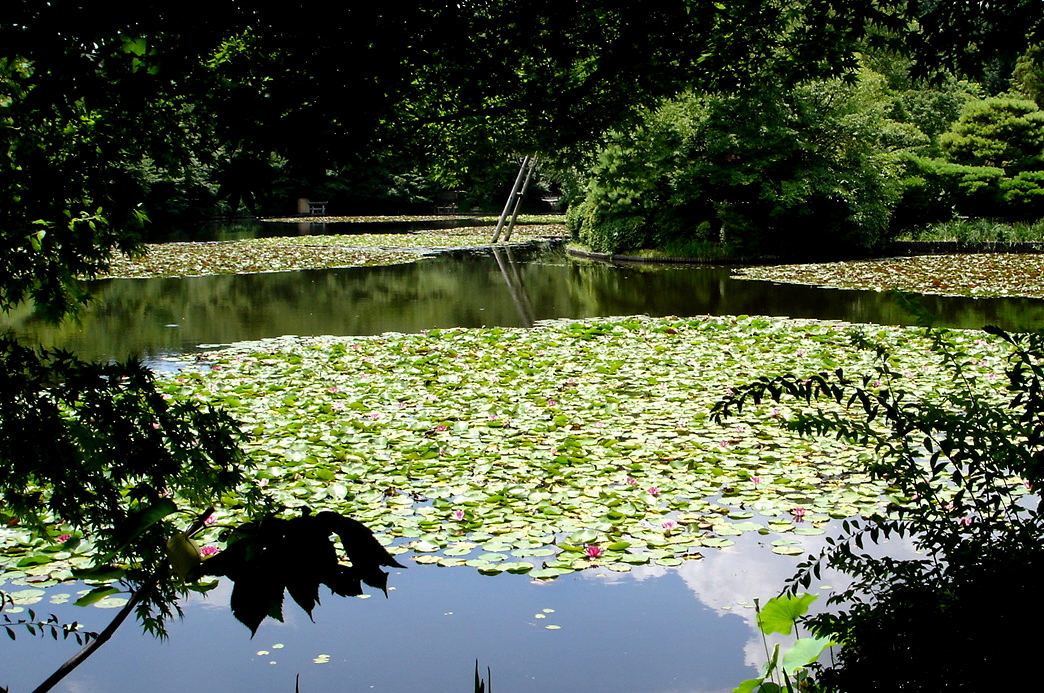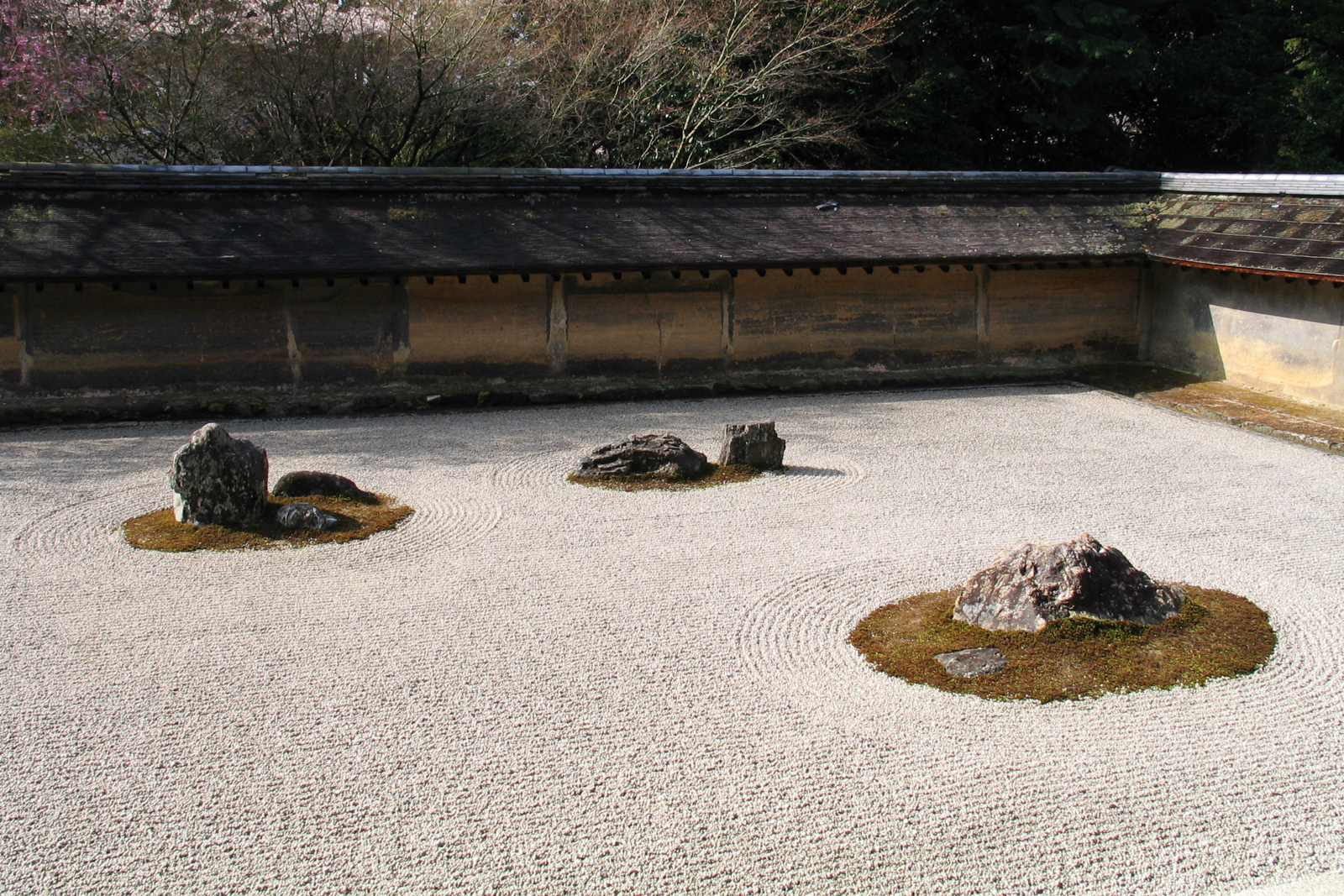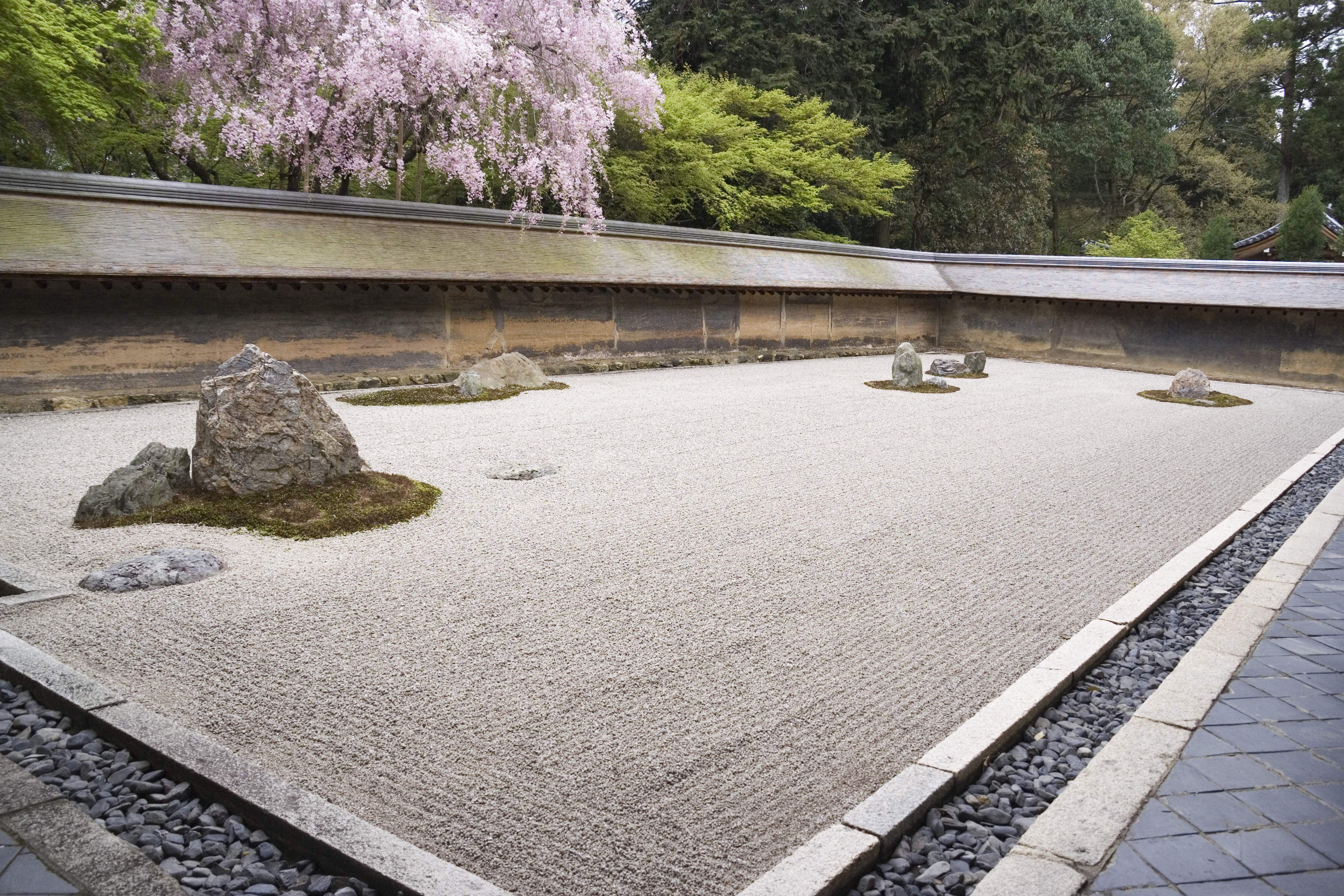Ryōan-ji Temple of Kyoto
The secret of the mysterious, centuries-old appeal of the Ryoanji Temple garden in Kyoto has been solved, claim scientists in Japan. They think visitors unconsciously detect a "hidden" tree pattern, which explains why the sparse arrangement is so pleasing to the eye.
The Fujiwara dominated the Japanese politics of Heian period (794–1185) through the monopoly of regent positions, sesshō and kampaku. Fujiwara clan (藤原氏 Fujiwara-uji or Fujiwara-shi), descending from the Nakatomi clan, was a powerful family of regents in Japan.
Japanese rock garden, often called a zen garden, creates a miniature stylized landscape through carefully composed arrangements of rocks, water features, moss, pruned trees and bushes, and uses gravel or sand that is raked to represent ripples in water.
Myōshin-ji is a temple complex in Kyoto, Japan, and head temple of the associated branch of Rinzai Zen Buddhism. The Myōshin-ji school is by far the largest school in Rinzai Zen: it contains within it about three thousand five hundred temples throughout Japan, together with a handful overseas, of the approximately six thousand total Rinzai temple.









